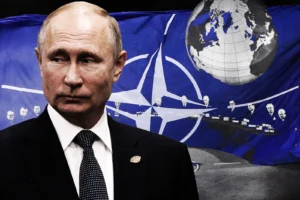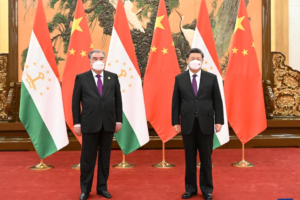LONDON — A new malaria vaccine approved Monday for use by the World Health Organization could be rolled out in African countries in the next few months, potentially saving hundreds of thousands of children’s lives in the coming years.
The new vaccine, known as R21, was developed by Britain’s Oxford University along with the Serum Institute of India. It is already in use in Ghana and Burkina Faso.
“This new approval for R21 has the potential now that vaccination can occur across sub-Saharan Africa and protect many more children at risk,” said Professor Azra Ghani, an infectious disease epidemiologist at Imperial College London.
“We estimate that if this is rolled out across the continent at the sort of coverage levels that we’ve seen in the implementation study so far, this could avert up to a third of malaria deaths in children under five,” she said.
Dr. Hanna Nohynek, chair of WHO’s Strategic Advisory Group of Experts on Immunization, said the R21 vaccine is expected to close the gap between supply and demand, “enabling broader and possibly unconstrained access. Malaria vaccines introduced widely have the potential of saving tens of thousands of young lives each year,” she told reporters Monday in Geneva.
African trials
The vaccine has been undergoing clinical trials in several African countries. WHO Director-General Tedros Adhanom Ghebreyesus announced the approval at a press conference Monday in Geneva.
“In areas with seasonal transmission, it’s reduced symptomatic cases of malaria by 75% in the 12 months following a three-dose series of the vaccine. A fourth dose given a year after the third was shown to maintain protection,” he said.
In 2021, WHO approved the first malaria vaccine, RTS,S, made by the British pharmaceutical firm GSK.
“As a malaria researcher, I used to dream of the day when we would have a safe and effective vaccine against malaria. Now we have two,” Tedros told reporters.
WHO officials said there is little difference in the effectiveness of the two vaccines. However, the new R21 vaccine is cheaper to make, at around $2 to $4 a dose, with each patient needing four doses. That adds up to about half the cost of the RTS,S vaccine.
The new vaccine can also be made in much greater volumes. The Serum Institute of India is already in line to make 100 million doses a year, with plans to double that output.
Mosquito nets
Experts warn the new vaccine won’t beat malaria on its own, and other preventative measures are needed, including the use of mosquito nets.
“The children in both the vaccine arms and also the control arms [of the trials] were given nets. So, this additional efficacy of the vaccine is in the presence of this really important intervention. The second is something known as chemoprevention, that’s providing drugs to children in high-risk areas where malaria is particularly seasonal. And this is mostly in the Sahel region in west Africa,” Ghani told VOA.
Malaria burden
The World Health Organization estimates there were 247 million cases of malaria in 2021, a small increase on the previous year, and around 619,000 deaths. Ninety-five percent of cases and deaths are in Africa, and most deaths are in children under 5.
“We do hope that by introducing this new vaccine, we can really make a dent in this and get us back on track to the goals which were set by the WHO to reduce malaria by 90% by 2030,” Ghani added.
Dengue fever
WHO also approved a new vaccine Monday against dengue fever, another mosquito-borne disease common in tropical Latin American and Asian countries.
The drug, made by the Japanese multinational firm Takeda, was about 84% effective in clinical trials in preventing people from being hospitalized.
Source : VOA News
















